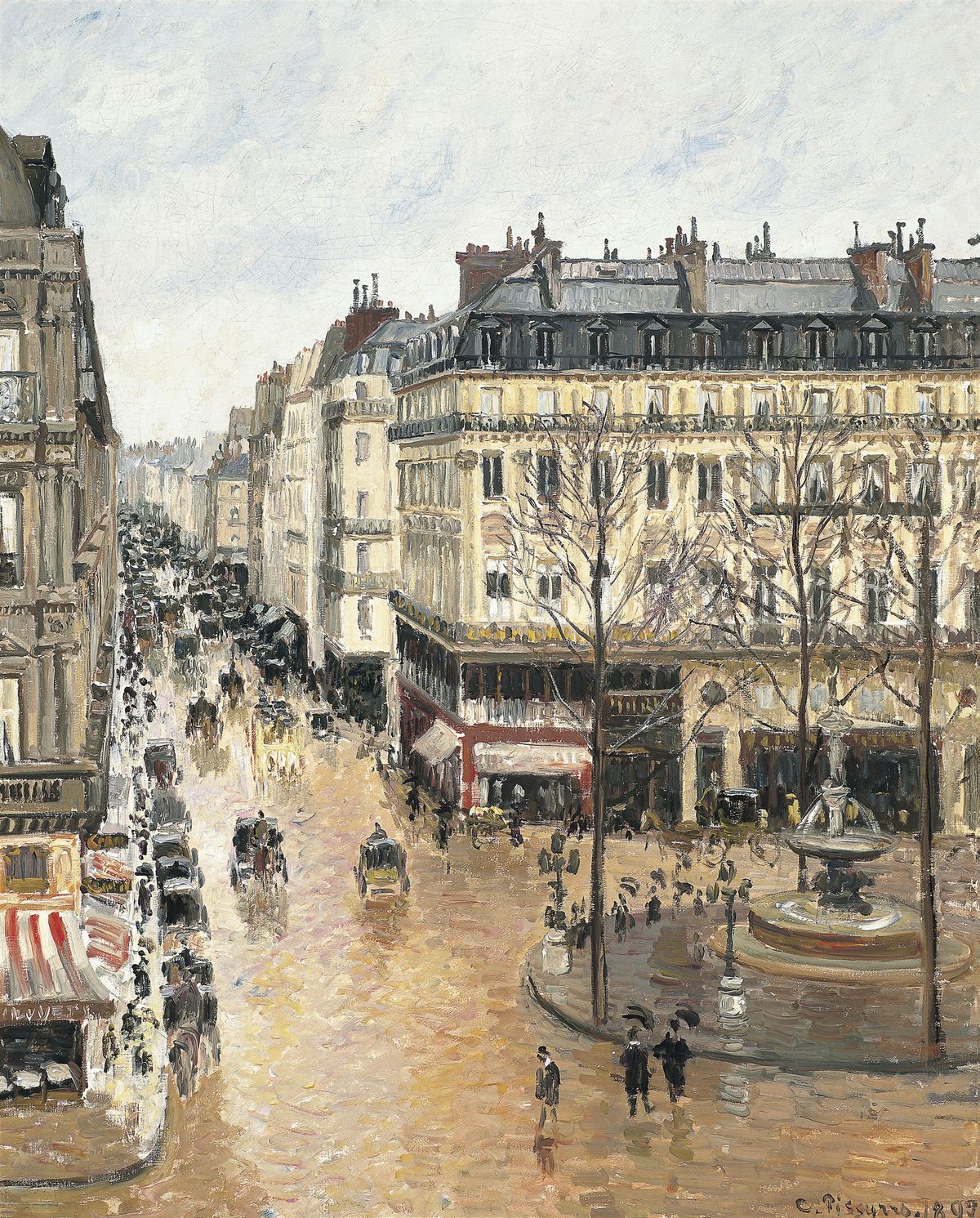The 20-year battle over a painting by Camille Pissarro that a Nazi art appraiser stole from a Jewish woman fleeing Germany will see argument in the US Supreme Court on 18 January, on whether the lower appeals court used faulty reasoning when it chose the law to apply to the claim.
On 15 December, the Thyssen-Bornemisza Collection Foundation (TBF) of Spain filed its brief disagreeing with the claimants, who say the California federal appeals court chose the wrong “choice of law” rule. The question, a paradise of complexities for procedural law experts, lets the Supreme Court further clarify the rules by which foreign sovereigns can be sued in US courts, and may determine whether the long dispute over the painting is closed.
In 1939, to get visas for herself and her husband to flee Germany, the owner, Lilly Cassirer Neubauer, sold the work, Rue St Honoré, après-midi, effet de pluie (1897) to a Nazi for $360, which she was barred from accessing. After intervening sales, it was bought by the Swiss collector Baron Hans Heinrich Thyssen-Bornemisza, who in 1993 sold his collection, including the Pissarro, to the TBF.
In 1999, the claimants, Lilly Cassirer Neubauer’s heirs, discovered the painting’s whereabouts, and after seeking its return, sued in California when the TBF denied the claim. As the TBF is an instrumentality of the Kingdom of Spain, federal law would normally bar a lawsuit against it in US courts, but the claim was permitted because it alleged a taking of property in violation of international law, one of the few exceptions that let foreign states be sued under the US Foreign Sovereign Immunities Act (FSIA).
After procedural twists and turns and a trial, in 2020 the 9th Circuit federal appeals court decided that the lower court had correctly applied “federal common law”—derived from federal court decisions—when it chose the substantive law of Spain, not California, to adjudicate the facts. On that basis, the lower court had determined that the TBF had gained ownership of the painting under the Spanish law of “acquisitive prescription”, which vests ownership in a possessor after six years if the possessor lacked actual knowledge that the property was stolen.
The heirs say the appeals court should have decided that California law, not federal common law, must choose the substantive law of the case, and that under California’s choice-of-law rule, California’s ownership law, not Spain’s, would be selected. Under California law, the Nazi, having acquired the painting by theft, could never convey good title, so the heirs would still own the painting.
The parties’ briefs skirmish over a particular FSIA clause, which says that when a foreign state is allowed to be sued it is liable in the same manner and extent as a private individual would be in like circumstances. In a friend of the court brief filed in the case, the US government says that the “same manner and extent” rule means the lower court should have used state law, meaning California’s—not federal common law—to choose the substantive law of the case. Precedent from the Supreme Court and four other appeals courts supports this, the government says. The heirs agree, saying the appeals court’s wrong approach led it to Spain’s law by reference to a legal text written by scholars called the “Restatement”, which they quote the late Justice Antonin Scalia as having questioned.
The TBF counters that the Restatement has been adopted in many US states anyway, that a federal choice-of-law rule is appropriate in claims against foreign states given the federal interests involved, and that the FSIA intends uniformity in lawsuits against foreign states, which plaintiffs could upheave if they could “forum shop” to find the state that would allow them the most favorable underlying law. The foundation adds that applying California law would unconstitutionally “trample” its due process rights by depriving it of a painting it has owned under Spanish law since 1999.
Stephen Zack, a lawyer at Boies Schiller Flexner in Miami, who with others is representing the claimants, tells The Art Newspaper that, “We are pleased that the US Supreme Court has agreed to review this miscarriage of justice. State and federal laws and policies, as well as international agreements to which the US and Spain are parties, make it clear that looted artworks should be restored to their rightful owners.”
In a statement, lawyers for TBF—including Thaddeus Stauber, Sarah André and others at Nixon Peabody in Los Angeles—write: “At the conclusion of the case, regardless of which choice-of-law test is applied, the Foundation anticipates that its ownership of the painting—already recognized by the district court and the Ninth Circuit—will be affirmed.”


